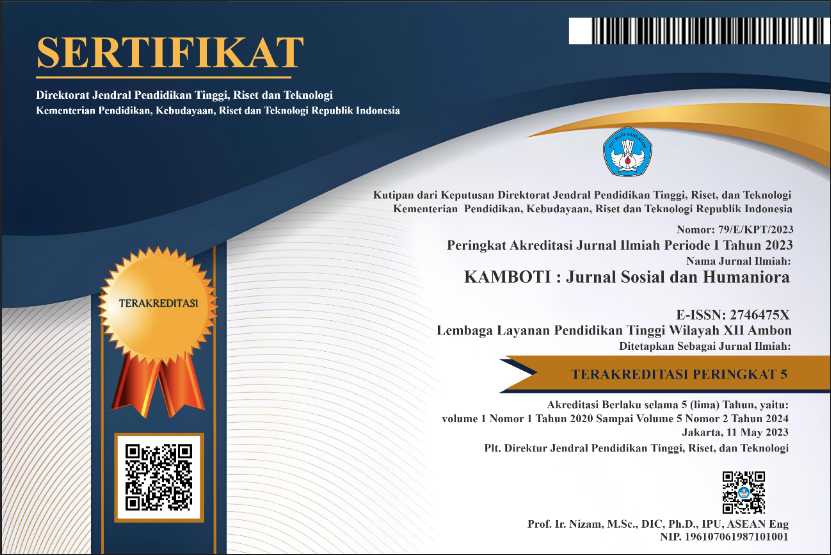Pelestarian Warisan Sejarah Melalui Sinergi Antar-Stakeholder dan Digitalisasi Warisan Sebagai Model Pengembangan Pariwisata Banda Naira
DOI:
https://doi.org/10.51135//kambotivol1issue1page44-58Keywords:
Historical Heritage, Collaborative Preservation, Heritage Digitalization, TourismAbstract
Banda Naira is the sub-district capital in Central Maluku Province which has many colonial buildings, such as residential areas, ancient temples, old churches, ancient mosques, mini palaces, and fortresses. However, recent research shows the problem of differences in perceptions among the public, government, and private communities in an effort to preserve Banda's historical heritage, so that Banda's development programs as a tourism destination tend to ignore its historical aspects that risk threatening the preservation of the Banda archipelago heritage itself. This study aims to show several models of Banda Naira historical heritage preservation, by involving direct interview methods through qualitative analysis. There are two methods of historical heritage development proposed; first, collaborative methods, or conservation that are focused on the role of stakeholders, namely; Dispar (tourism office) Maluku province and Central Maluku district, Banda residents, historians, and tourists. Second, the method of digitizing cultural heritage, namely preservation by involving archaeologists, historians, IT experts, and local communities based on interactive website information technology to jointly contribute to preserving colonial historical heritage in Banda Naira. These two conservation methods are important because they complement each other's weaknesses, and are more appropriate for tourism development in the Banda Naira archipelago as historical tourism destinations.
Downloads
Published
09-10-2020
Issue
Section
Articles
License
Copyright (c) 2020 KAMBOTI: Jurnal Sosial dan Humaniora

This work is licensed under a Creative Commons Attribution-ShareAlike 4.0 International License.
How to Cite
Farid, M. (2020). Pelestarian Warisan Sejarah Melalui Sinergi Antar-Stakeholder dan Digitalisasi Warisan Sebagai Model Pengembangan Pariwisata Banda Naira. KAMBOTI: Jurnal Sosial Dan Humaniora, 1(1), 44-58. https://doi.org/10.51135//kambotivol1issue1page44-58



